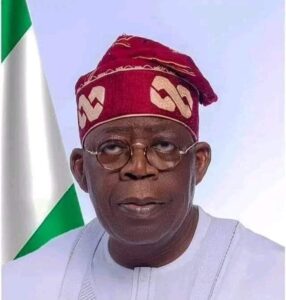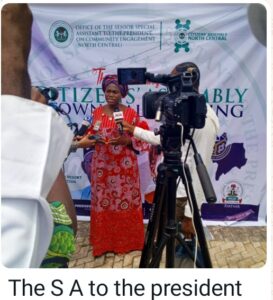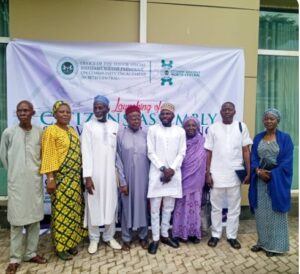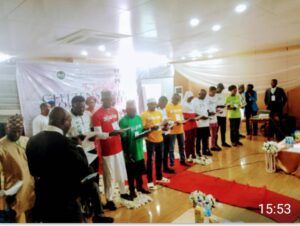


President Bola Ahmed Tinubu.
The Senior Special Assistant to the President on Community Engagement in charge of North Central Nigeria,Mrs.Abiodun Easier, on Wednesday launched Town Hall Meeting and Citizen’s Assembly in Lokoja, Kogi State.


Members of Kogi Unity Movement, KUM, that attended the occasion.
The Federal Government has launched a ‘Citizens’ Assembly’ through the office of the Senior Special Assistant (SSA) to the President on Community Engagement for North Central Nigeria.
This initiative aims to address local issues and promote an inclusive society.
The Assembly was inaugurated on Tuesday,at a town hall meeting in Lokoja, organized in partnership with the National Orientation Agency (NOA)

Volunteers taking oath of office at the occasion.
Mrs. Abiodun Essiet, the SSA on Community Engagement, highlighted the assembly’s goal of fostering community-driven solutions and ensuring every voice is heard. She described the launch as a vital step toward enhancing grassroots representation in governance.
Essiet emphasized the importance of community engagement in building trust between the government and citizens. “It creates a direct connection, ensuring that people’s voices are recognized in decision-making,” she stated.
According to her, a survey conducted in March 2024 involving 166 respondents from North Central states revealed significant concerns about government engagement. Key findings included:
She said:”48.2% perceived a lack of engagement from the Federal Government,78.3% felt unrepresented in government policies,62.1% viewed community engagement organizations as effective and
68.7% believed the government fails to consult local communities before project implementation.
“Despite these challenges, nearly 90% of participants affirmed that collaborative efforts could yield sustainable solutions.”
Essiet noted that these findings reflect a long-standing disconnect between the Federal Government and local communities, fueled by unfulfilled promises over the last 25 years.
The Citizens’ Assembly,she pointed out,aimed to bridge this gap by encouraging citizens to participate in President Bola Tinubu’s Renewed Hope Agenda, which seeks to enhance governance through strategic citizen engagement.
The presidential aide outlined three key purposes for the meeting: to listen, inform, and collaborate.
She urged citizens to share their concerns and aspirations, emphasizing the importance of transparency in governance and the need for active citizen participation to drive meaningful change and encouraged other government officials to adopt similar models in their communities for collective prosperity.
Mr. Abdulganiyu Dare, the State Director of NOA, reiterated the agency’s commitment to facilitating communication and stakeholder engagement, stating that the Citizens’ Assembly presents a significant opportunity for dialogue and collaboration.
During the inauguration of volunteers, Mr. Abdulraheem Sanni, a member of the House of Representatives, praised the federal initiative and urged the volunteers to serve their communities with integrity.
The Guest speaker, Prof. Salisu Usman, who is the Rector, Kogi State Polytechnic, Lokoja, commended President Tinubu’s transformational policies but stressed the urgent need to address food insecurity resulting from subsidy removal.
He also called for fairness in the government’s anti-corruption efforts.
Our correspondent reports that volunteers were selected to represent at least one ward from each of the six North Central states and the Federal Capital Territory. There are 239 wards in the state.
Our correspondent reports that highlights are the occasion was the oath of office taking by the volunteers for the Assembly.
They were later led in three sections:The spirit of volunteerism: Fostering Community Growth,The Federal, State and Local Government’s Role in Community Engagement and Building Patriotism and The Role of Volunteers in the Citizens’Assbly as well as questions and answers.
The event saw participation from various stakeholders, including youths, women’s groups, artisans, students, security agencies, and people with disabilities.
Edited by Dada Ahmed.


